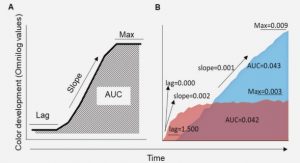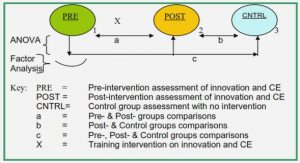Get Complete Project Material File(s) Now! »
CHAPTER 3 INTERNATIONAL LEGAL FRAMEWORK FOR THE PROTECTION OF THE HIV POSITIVE WORKER
INTRODUCTION
Human Rights are conditions and expectations to which every person, by virtue of his or her existence as a human being is entitled.119 They are a system of socially regulated conditions that every human being automatically acquires at birth without discrimination.120 Human rights have been around for a long time – too long, to be still be viewed with scepticism and to have their value and necessity questioned.121 According to Janusz Symonides;
“Human rights have frequently been qualified as the “common heritage” or as the common language of humanity. Indeed, they do not belong to domestic jurisdiction of states and are internationally protected. Today, they create a body of universal standards and values at the service of human dignity, equality and non-discrimination, and human freedoms.”122
In nature and origin, human rights can be traced to the religious,123 philosophical124 and legal developments125 throughout human history. The ideals from the foregoing sources have to-date been codified into documents in terms of constitutions or treaties. For a long time, the concept of human rights did not attract much of an obligation under both national and international law. Natural persons were deemed to be alien under international law as international law essentially governed relations between states.126 By its very definition, international law governed relations between states.127
Individuals had no locus standi128 to rely on international law in any forum, as a sharp contrast existed between the state and human being who composed it,129 and alleged violations of individual rights could only be defended by the state. 130
Over time, international law has recognised individuals as having capacity to approach its institutions. According to Kelsen, international law and state law both bind individuals, but the former does so by operating through a concept of the state, while the latter does it directly.131 In Danzig Railway Officials Case, the Court held that a treaty could in certain circumstances confer rights directly to individuals, provided it was the intention of the parties.132 More recently, the Nuremberg Tribunal emphatically stated as follows of the obligations of individuals under international law:
“Crimes under international law are committed by men, not by abstract entities and only by punishing individuals who commit such crimes can provisions of international law be enforced.”133
As such, individuals are subject of international law and hence have rights and obligations under that law. 134 States can therefore no longer invoke the doctrine of state sovereignty or even lack of locus standi under international law to perpetuate violation of human rights under international law.135
Part one of this Chapter examines the obligation of states in the protection of economic, social and cultural rights. This part looks into both the behaviour of states in protection of the foregoing rights in relation to civil and political rights, and attempts to explain the causation of the discriminatory approach in protection of the economic, social and cultural rights. Part two examines select international instruments that either expressly or implicitly make reference to HIV/AIDS in the labour sector. This part evaluates the extent to which international instruments have been enforced by State Parties. Part three of this chapter analyses the relevant regional instruments that have advocated for the rights of HIV Positive workers. This part appreciates the fact that in terms of implementation, regional instruments are more expeditious owing to their geographical application and the assumption that the regional instruments are more “representative of the ideals of the State Parties as compared to international instruments. Part four of this chapter assesses the application of international and regional instruments in Kenya. This part appreciates the trend that Kenyan courts have taken from an earlier position where the courts flatly refused to apply international instruments that had been ratified by Kenya without reservation on the argument that the instruments had not been domesticated, to a change of judicial jurisprudence where courts consider ratification without reservation as an unequivocal indication by Kenya to be bound by the international instruments in its domestic affairs. This chapter ends by giving a summary of the extent to which international instruments have advocated for non-discrimination; privacy rights; right to work; and access to drugs by HIV positive workers.
STATE OBLIGATION IN THE ENJOYMENT OF ECONOMIC, SOCIAL AND CULTURAL RIGHTS
In order to understand the substance of rights, it is essential to explore the corresponding obligations of States. The Universal Declaration of Human Rights envisaged that every person throughout the world should enjoy all rights.136 The rights must be absorbed into the legal, administrative and political culture of nations, first by recognizing that they are achievable ideals and then by implementation in national law and administration through relevant political and social reforms. Global institutions had to be set up to monitor the implementation of human rights world wide and to bring about co-operation in the fields of economic, social and cultural matters to establish conditions for their full enjoyment throughout the world.137 While the passing of international instruments (Conventions and Declarations) create obligations for states under international law, the main task however is to ensure that the rights contained therein are incorporated into the national (municipal) law and administrative practice.
This transformation, whether into constitutions or into statutory law, can be fully achieved only when it goes hand – in – hand with the evolution of a human rights culture where individuals as well as politicians, administrators and security forces know and accept, not only their own rights, but also their duties flowing from the rights of other members of the community on a basis of equality.
Under international law, obligations for human rights are primarily held by states. When states seek to implement these obligations in national law, they are also required to impose duties on persons subject to their jurisdiction.138 The duties of individuals are in most cases not contained in international instruments; they are underlying necessities, but left to the States for adoption through national legislation. Nor are the obligations of States spelled out in great detail in the main human rights instruments. They are indeed gradually clarified through additional specific instruments, and through the practice of monitoring bodies.
The wordings of article 2(1) of the International Covenant on Economic, Social and Cultural Rights (ICESCR)139 varies from the wording of article 2(1) of the International Covenant on Civil and Political Rights (ICCPR).140 The issue for examination then is whether the difference in wording of the international instruments is synonymous to difference in obligation of states in the protection of Economic, Social and Cultural Rights on one hand, and Civil and Political Rights on the other hand. The Committee on Economic, Social and Cultural Rights sharply criticised any distinction in state obligation in the following words:
“While great emphasis has sometimes been placed on the difference between the formulation in this provision [art. 2(1) ICESCR] and that contained in the equivalent article 2 of the International Covenant on Civil and Political Rights, it is not always recognised that there are also similarities. In particular, while the Covenant provides for a progressive realisation and acknowledges the constraints due to the limits of available resources, it also imposes various obligations which are of immediate effect.”141
The Committee on ICESCR was therefore emphatic that ICESCR imposes obligations which States must comply with immediately, regardless of their development.142 The argument that there are different layers of human rights which impose varying obligation among States143 is open to question.
For a long time, the prevalent view has been that all economic, social and cultural rights must be provided by the State, and that they are costly and lead to an overgrown state apparatus. This view is the consequence of a narrow understanding of the nature of economic, social and cultural rights and in turn of the corresponding state obligations. Given their relevance to development policies, an analysis of economic, social and cultural rights is necessary in the context of the AIDS pandemic vis-à-vis employment relationships. The availability of resources refers, not only to those that are controlled by or filtered through the State or other public bodies, but also to the social resources which can be mobilized by the widest possible participation in development, as necessary for the realization of the rights recognized in the covenant.
Therefore, a realistic understanding of State obligations must take into account, as laid down in Article 2 of the Declaration of the Right to Development, that the individual is the active subject of all economic and social development.144 Most human beings naturally strive to take care of their own livelihood by their own efforts and resources individually or in association with others, by entering into paid employment contracts, et cetera. The use of his or her resources, however, requires that the persons have resources, which can be used. All these are seriously affected by HIV/AIDS that naturally increase the cost of living for the victim due to increased spending on medication, nutrition albeit at reduced or no earning since the victim if in employment risks losing the job on testing HIV positive. Equally, the victim’s saving capacity is greatly affected by increased cost of living so that such a person is left with little or no money at all for investment.145 The individuals’ ability to offer any productive and sustainable labour is also greatly reduced as HIV/AIDS characteristically weakens the body structures, thus rendering the individual helpless by confining him/her to bed awaiting eventual death. As a consequence, a nation’s development is interfered with as the most able bodied persons are the ones who also succumb to death in the face of HIV/AIDS. The decline in the labour sector reduces a nation’s tax base and increases demand for services.
Thus, States must at the primary level, respect the resources owned by the individual, his or her freedom to find a job and the freedom to take the necessary actions and use the necessary resources -alone or in association with others – to satisfy his or her own needs. It is in this regard that collective or group rights become important. The safeguarding of rights of the vulnerable groups of the population including those infected or affected by HIV/AIDS is important just like the rest of the population.146 The enjoyment of the rights to work, and earn a decent living must be guaranteed to all individuals within a State without any distinction as to HIV status, as this would amount to discrimination.147 Consequently, as part of the obligation to respect the rights to acquire resources, the State should take steps to recognize and legislate the work rights of HIV positive workers who are still able to perform their work. By so doing, the State will be assisting them in making use of their own resources and therefore enable them secure pay for work done. This will lessen the burden that would have otherwise rested on the few fortunate members of their families to take care of them and their dependants.
At a secondary level, State obligations are meant to protect the freedom of action and the use of resources against other, more assertive or aggressive subjects in the context of HIV/AIDS, more powerful economic interests, such as protection against summary dismissal of an HIV positive worker based on his/her HIV status, against unethical behaviour in contractual relations for pre-employment HIV testing and mass screening for HIV/AIDS in cases of continuing employment of workers.148 This protective function of the state is the most important aspect of state obligations also with regard to economic, social and cultural rights, and it is synonymous with the role of the state as protector of civil and political rights. A state’s role in respect to socio-economic and cultural rights is expressed mostly in pieces of legislation.149 However, legislation of this kind must, be contextual, and it must be based on the specific requirements of the country concerned.150
At the tertiary level, the State has the obligation to facilitate opportunities by which the rights listed can be enjoyed. For example, with regard to the right to food, the state shall under Article 20 of the International Covenant on Economic, Social and Cultural Rights, take steps to improve measures of production, conservation and distribution of food by making full use of technical and scientific knowledge and by developing or reforming agrarian systems.151
At the fourth and final level, the state has the obligation to fulfil the rights of everyone under economic, social and cultural rights. This obligation could at its simplest consist of the direct provisions of basic needs, such as food or resources. This could also occur where many young able bodied persons are dismissed from employment on testing HIV positive thereby becoming jobless. This leaves the old who are physically and economically disadvantaged to take care of the those whose relatives have succumbed to AIDS.
Declaration
Dedication
Summary
Acknowledgements
CHAPTER 1
1.1 Introduction
1.2 Problem Statement
1.3 Justification of the study
1.4 Aims/Objectives of the study
1.5 Conclusion
CHAPTER 2 MEANING, PREVALENCE AND RAMIFICATIONS OF HIV/AIDS IN KENYA
2.1 What is HIV/AIDS
2.2 Prevalence of HIV/AIDS
2.3 Ramifications of HIV/AIDS in Kenya
2.4 Conclusion
CHAPTER 3 INTERNATIONAL LEGAL FRAMEWORK FOR THE PROTECTION OF THE HIV POSITIVE WORKER
3.1 Introduction
3.2 State obligation in the enjoyment of economic, social and cultural rights
3.3 International instruments
3.4 Limitations of international human rights instruments in addressing the HIV/AIDS pandemic
3.5 Regional framework for the protection of the HIV positive worker
3.6 Application of International Instruments in Kenya
3.7 Conclusion: Summary of rights of HIV positive workers in the workplace under international law
CHAPTER 4 KENYA’S LEGAL FRAMEWORK FOR THE PROTECTION OF THE HIV POSITIVE WORKER
4.1 Introduction
4.2.1 Constitution of Kenya
4.3 Conclusion
CHAPTER 5 COMPARATIVE ANALYSIS: PROTECTION OF HIV/AIDS WORKERS IN SOUTH AFRICA
5.1 Introduction
5.2 Legislation
5.3 Conclusion
CHAPTER 6 COMPARATIVE ANALYSIS: PROTECTION OF THE HIV POSITIVE WORKER IN THE UNITED STATES OF AMERICA
6.1 Introduction
6.2 Legislation
6.3 Conclusion
CHAPTER 7 COMPARATIVE ANALYSIS: PROTECTION OF THE HIV POSITIVE WORKER IN AUSTRALIA
7.1 Introduction
7.2 Legislation
7.3 Conclusion
CHAPTER 8 CONCLUSION AND RECOMMENDATIONS FOR IMPROVED PROTECTION OF THE HIV POSITIVE WORKER IN KENYA
8.1 Conclusion
8.2 Recommendations
LIST OF ABBREVIATIONS
BIBLIOGRAPHY
GET THE COMPLETE PROJECT
HIV/AIDS AND THE LABOUR SECTOR: EXAMINING THE ROLE OF LAW IN PROTECTING THE HIV POSITIVE WORKER IN KENYA






